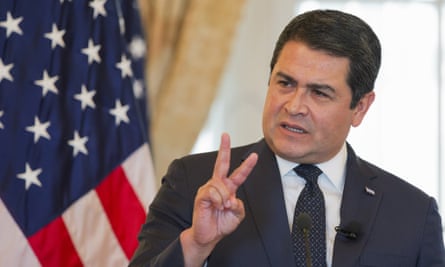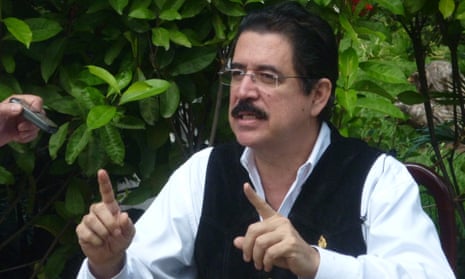The supreme court in Honduras has voided a single-term limit for the country’s presidency — the issue at the heart of the political conflict that led to the ousting of socialist incumbent Manuel Zelaya six years ago when he sought to hold a referendum on rewriting the constitution.
The push by the governing National party to make the change, which would permit President Juan Orlando Hernandez to seek a second term, has drawn widespread criticism from the opposition, which notes the same politicians behind it were involved in the 2009 coup against Zelaya.
Forces that united to remove Zelaya from office, including some members of his own party, had contended he wanted to end the ban on second terms so he could remain in power.
The supreme court initially voted 5-0 on Thursday to strike down the prohibition on presidential re-election but judge Elmer Lizardo, a member of the opposition Liberal party, reversed his vote later in the day.
“The resolution makes clear that no law may restrict the rights of Hondurans,” a spokesman for the court, Melvin Duarte, said at a news conference.

He said that once published imminently in the Official Gazette the ruling would take effect and annul the constitution’s Article 239, which says anyone who has served as president cannot hold the post again or serve as vice-president.
The ruling came in a petition filed in December by 17 legislators arguing that the prohibition was constitutional. Former president Rafael Leonardo Callejas, who held the post from 1990 to 1994, joined the appeal last month, saying the ban violated human rights.
After the court ruled, Callejas announced that he was looking to run for the presidency again.
Opposition members decried the change.
“The ruling opens the way to a dictatorship that would permit Hernandez to stay in power [indefinitely],” said Salvador Nasralla, an unsuccessful presidential candidate for the Anti-Corruption Party in the 2013 national elections.

Comments (…)
Sign in or create your Guardian account to join the discussion